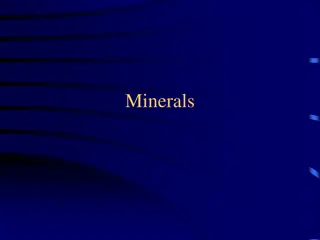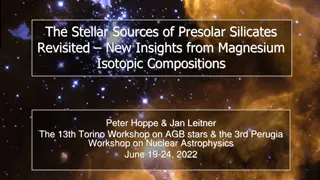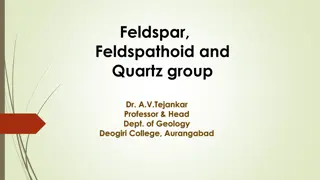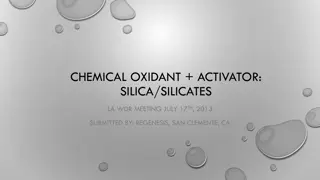The History of the Earth
The Earth, 4.5 billion years old, emerged from a nebula in the Milky Way Galaxy. Gravity led to the condensation of a rotating cloud into the Sun and planets. Over time, lumps collided, forming gas giants, rocky planets, and asteroids. The outer planets attracted hydrogen and helium, while the inner
2 views • 45 slides
Exploring the Fascinating World of Minerals
Discover what minerals are, their characteristics, and how they form naturally. Learn about the distinction between minerals like quartz and silver versus substances like coal or glass. Explore the diverse categories of rock-forming minerals, including silicates and nonsilicates, and delve into thei
0 views • 24 slides
Insights on Presolar Silicates and Magnesium Isotopes
Primitive meteorites contain presolar grains with unique isotopic compositions, paving the way for the study of stardust from stars to laboratories. Ion imaging techniques reveal the abundant presence of presolar silicates, showcasing advancements in in situ studies facilitated by cutting-edge techn
0 views • 17 slides
Overview of Feldspar Group in Geology: Types, Composition, and Properties
The Feldspar Group is a vital component of rock-forming silicates found in various types of rocks. Comprising two main types - Alkali Feldspar and Plagioclase Feldspar, they exhibit distinct chemical compositions and physical properties. These alumino-silicates are characterized by their atomic stru
2 views • 10 slides
Environmental Remediation Using Silica/Silicates for Contaminant Oxidation
Utilizing silica and silicates as chemical oxidants in environmental remediation has been approved under the general WDR permit since 2010. With over 1,500 applications in the US and Canada, including 148 in California, these substances are known for their safety and effectiveness in contaminant oxi
0 views • 8 slides




